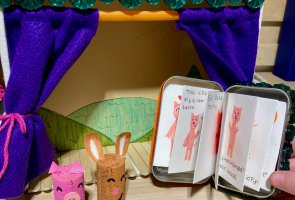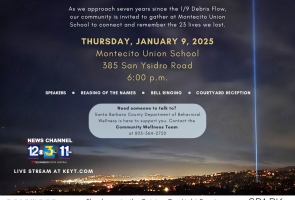Are You in a Toxic Relationship?
Here Are Five Red Flags to Watch Out For
Toxic relationships rarely announce themselves — they creep in quietly, eroding trust, safety, and self-worth over time. While the term “toxic” is widely used, it often describes dynamics that drain your energy, diminish your quality of life, and undermine your mental and emotional well-being. These relationships can involve subtle control, manipulation, or a lack of empathy, leaving you questioning your worth. Dramatic examples like Elizabeth Taylor and Richard Burton’s tumultuous romance captivate us, but real-life toxicity often operates in quieter yet equally corrosive ways. Alarmingly, nearly half of all adults — 48.4 percent of women and 48.8 percent of men — report experiencing psychological aggression by a partner, highlighting how common and damaging these dynamics can be. Recognizing the red flags is the first step toward reclaiming your peace of mind.

Here are five critical red flags to watch for:
1. Constant Criticism and Contempt
Constructive criticism is healthy — it can help us grow and understand each other better. But if you find yourself on the receiving end of unending negative comments or insults, this can point to toxicity. Constant criticism wears away at your self-esteem, making you question your abilities, appearance, or even your worth as a person. Over time, such contempt can lead to a deeply rooted sense of inadequacy.
A famous example of this can be seen in The Devil Wears Prada, where Miranda Priestly’s cold, critical nature has a toxic impact on those around her. In a romantic relationship, this dynamic can be even more devastating. Instead of uplifting each other, one partner wields criticisms to control or diminish the other.
2. Isolation from Friends and Family
One of the more insidious signs of a toxic relationship is when your partner encourages — or even demands — that you pull away from friends and family. This doesn’t necessarily happen overnight. It may start subtly: Your partner may make comments that your family “doesn’t understand you” or that your friends “don’t really support” your relationship. This manipulation isolates you from your support system, making you more reliant on them and less likely to leave if things worsen.
Isolation is often about control. It can leave you feeling as if the toxic person is the only one you can rely on. But, as many therapists will tell you, cutting off loved ones is a red flag that should never be ignored.
3. Walking on Eggshells
Healthy relationships encourage honesty and vulnerability. However, in toxic dynamics, people often feel the need to suppress their true selves to avoid conflict. If you’re walking on eggshells around your partner — constantly on guard about what you say, behave, or bring up — this is a warning sign of toxicity.
The pressure to conform to an ideal or to avoid upsetting your partner drains your energy and limits your sense of self. Even subtle indicators, like overthinking before speaking or editing yourself to avoid conflict, can reflect an imbalance of power. Toxic relationships often feature control tactics that make one partner feel like they’re always doing something wrong or that their partner’s love or approval is conditional.
4. Gaslighting and Manipulation
Gaslighting is a term that’s become widely known in recent years, yet its effects can be subtle and incredibly damaging. When someone gaslights you, they make you question your perceptions, memory, and even sanity. If you’re frequently told you’re “too sensitive,” that events you remember never happened, or that your emotions are invalid, gaslighting may be at play, which is one of the most disorienting and dangerous aspects of a toxic relationship because it undermines your self-trust.
Imagine telling your partner you’re hurt by something they said, only to have them respond, “I never said that” or “You’re imagining things.” Over time, you start doubting your version of reality, and it becomes challenging to trust your own perceptions and emotions. Gaslighting can leave a person feeling trapped and confused, with diminished self-worth and confidence.
5. Lack of Empathy or Compassion
Empathy is a cornerstone of healthy relationships. When one partner consistently shows a lack of empathy or compassion, it can signal deeper toxicity. In a toxic relationship, there may be a pattern of one partner disregarding the other’s needs, feelings, or experiences. When your partner doesn’t acknowledge your pain, excitement, or personal growth, it leads to a sense of isolation and loneliness, even within the relationship.
Lack of empathy is not just about indifference but a fundamental imbalance in emotional investment. Think of an example where one person shares their struggles, hoping for understanding, only to be met with indifference or dismissal. This reaction cuts deep, conveying that the partner doesn’t value the other’s feelings. When your partner shows a consistent inability or unwillingness to “walk in your shoes,” this is often a warning sign of a toxic dynamic.

In Conclusion
Awareness of these red flags is the first step toward regaining control over your emotional and mental well-being. If you recognize these signs in your relationship, it’s essential to seek support from friends, family, or a therapist who can offer perspective and guidance. Toxic relationships thrive in isolation; breaking free requires connecting with people who genuinely care for your well-being.
While leaving a toxic relationship is rarely easy, the freedom that follows is worth the challenges. Healing and rebuilding the parts of ourselves that have been damaged often takes time. Remember, recognizing toxicity is not a weakness; it’s a sign of resilience and self-respect.
Disclaimer: The content provided here is for informational purposes only and is not a substitute for professional therapy, counseling, or medical advice. Please consult a licensed mental health professional for personalized support and guidance.
Local Santa Barbara Resources
- Domestic Violence Solutions for Santa Barbara County
- Services: Emergency shelter, counseling, legal support, and a 24/7 hotline for those experiencing abuse.
- Hotline: (805) 964-5245
- Website: dvsolutions.org
- Santa Barbara Rape Crisis Center (SBRCC)
- Services: Crisis intervention, counseling, advocacy, and support for survivors of sexual assault and intimate partner violence.
- 24/7 Hotline: (805) 564-3696
- Website: sbrapecrisiscenter.org
- Legal Aid Foundation of Santa Barbara County
- Services: Free or low-cost legal services, including help with restraining orders, custody, and other legal issues tied to abusive relationships.
- Phone: (805) 963-6754
- Website: lafsbc.org
- Santa Barbara County Victim-Witness Assistance Program
- Services: Advocacy, court accompaniment, and support for crime victims, including victims of domestic violence.
- Phone: (805) 568-2400
- Family Service Agency (FSA) of Santa Barbara County
- Services: Counseling, case management, and support services to help individuals and families navigate difficult life changes.
- Phone: (805) 965-1001
- Website: fsacares.org
National Resources
- National Domestic Violence Hotline
- Services: Confidential support, safety planning, and referrals to local resources for those in abusive relationships.
- 24/7 Hotline: 1-800-799-SAFE (7233)
- Website: thehotline.org
- Love is Respect
- Services: Support and resources for young people in unhealthy relationships, with live chat, text, and phone support.
- Text: Text “LOVEIS” to 22522
- 24/7 Hotline: 1-866-331-9474
- Website: loveisrespect.org
- RAINN (Rape, Abuse & Incest National Network)
- Services: Support for sexual assault survivors, including online chat and a national sexual assault hotline.
- 24/7 Hotline: 1-800-656-HOPE (4673)
- Website: rainn.org
- StrongHearts Native Helpline
- Services: Culturally appropriate support for Native Americans experiencing domestic violence and dating violence.
- 24/7 Hotline: 1-844-7NATIVE (762-8483)
- Website: strongheartshelpline.org
- Women’s Law
- Services: Legal information and support for individuals dealing with domestic violence, with resources tailored to each state.
- Website: womenslaw.org
- National Coalition Against Domestic Violence (NCADV)
- Services: Information on finding local support, legal resources, and education on domestic violence.
- Website: ncadv.org
Premier Events
Sat, Jan 04
11:30 AM
Santa Barbara
Crafternoon: Sustainable Stagecraft
Sat, Jan 04
8:00 PM
Santa Barbara
No Simple Highway at SOhO Restaurant & Music Club
Sun, Jan 05
6:00 PM
Santa Barbara
Contra Dance💃 With Fiddle Tunas Band
Sun, Jan 05
7:00 PM
Santa Barbara
POSTPONED – Jazz at the Lobero: Robert Glasper – POSTPONED
Sun, Jan 05
7:00 PM
Santa Barbara
Taylor-Made Tapestry – A Tribute to Carole King & James Taylor
Mon, Jan 06
7:30 PM
Santa Barbara
The Ancient Art of the Maya Forest Garden
Wed, Jan 08
7:30 PM
Santa Barbara
Broadway In Santa Barbara Presents “Mean Girls”
Thu, Jan 09
5:30 PM
Santa Barbara
Blueprints of Tomorrow: A Vision Board Party
Thu, Jan 09
6:00 PM
Montecito
Raising Our Light – 1/9 Debris Flow Remembrance
Thu, Jan 09
6:00 PM
Santa Barbara
DIY Journal Workshop
Sat, Jan 04 11:30 AM
Santa Barbara
Crafternoon: Sustainable Stagecraft
Sat, Jan 04 8:00 PM
Santa Barbara
No Simple Highway at SOhO Restaurant & Music Club
Sun, Jan 05 6:00 PM
Santa Barbara
Contra Dance💃 With Fiddle Tunas Band
Sun, Jan 05 7:00 PM
Santa Barbara
POSTPONED – Jazz at the Lobero: Robert Glasper – POSTPONED
Sun, Jan 05 7:00 PM
Santa Barbara
Taylor-Made Tapestry – A Tribute to Carole King & James Taylor
Mon, Jan 06 7:30 PM
Santa Barbara
The Ancient Art of the Maya Forest Garden
Wed, Jan 08 7:30 PM
Santa Barbara
Broadway In Santa Barbara Presents “Mean Girls”
Thu, Jan 09 5:30 PM
Santa Barbara
Blueprints of Tomorrow: A Vision Board Party
Thu, Jan 09 6:00 PM
Montecito
Raising Our Light – 1/9 Debris Flow Remembrance
Thu, Jan 09 6:00 PM
Santa Barbara























You must be logged in to post a comment.